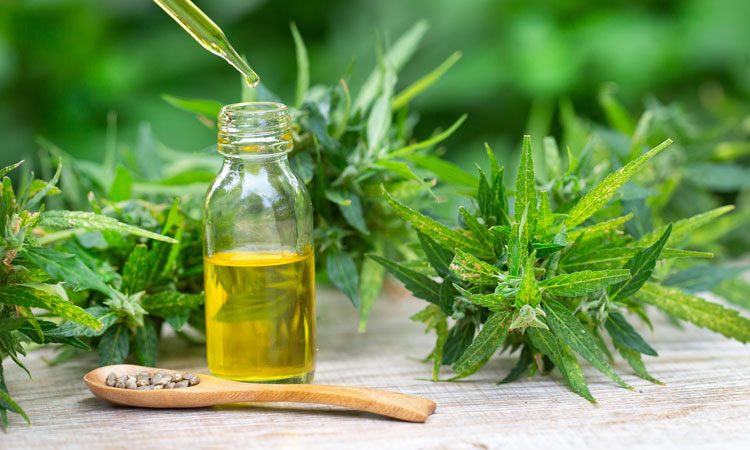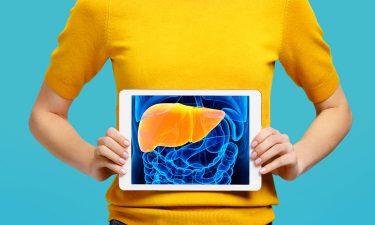Can CBD help treat health conditions or is it the placebo effect?
- Like
- Digg
- Del
- Tumblr
- VKontakte
- Buffer
- Love This
- Odnoklassniki
- Meneame
- Blogger
- Amazon
- Yahoo Mail
- Gmail
- AOL
- Newsvine
- HackerNews
- Evernote
- MySpace
- Mail.ru
- Viadeo
- Line
- Comments
- Yummly
- SMS
- Viber
- Telegram
- Subscribe
- Skype
- Facebook Messenger
- Kakao
- LiveJournal
- Yammer
- Edgar
- Fintel
- Mix
- Instapaper
- Copy Link
Posted: 12 August 2019 | Bethan Grylls (New Food) | No comments yet
The popularity of Cannabidiol (CBD) has surged, not just in the food and beverage industry, but across many other sectors, due to consumer beliefs that it can help treat certain aliments and illnesses. But many are questioning these claims, suggesting further investigation over CBD’s effects and perceived benefits are required.


Cannabidiol or CBD is the buzz word of 2019. In fact, in the US around 40 percent of adults (aged 21+) have stated that they would be keen to experience CBD “under the right conditions”, according to study from High Yield Insights.
With health and wellness a key trend in the food and beverage sector, many consumers are keen to try CBD, which has been suggested to have properties that help reduce pain and anxiety and even certain cognition and movement disorders. Seeing the demand for CBD, the food and beverage sector have responded, producing a range of CBD-containing goods.


Many consumers are keen to try CBD.
But according to Dr Matthew Halpert, Senior Scientific Advisor at Medterra (a leader in CBD), there has been “little scientific evidence” to support claims that CBD can in fact help with these aliments. Moreover, questions regarding the science, safety and quality of CBD products remain unanswered.
In a bid to find out more about CBD’s biological capabilities, researchers at Baylor College of Medicine and Medterra have come together to explore the verifiable effects of CBD. Here, New Food hears from Dr Halpert to find out more about CBD and the study.
What is CBD?
CBD is the second most prevalent active ingredient found in cannabis and derived directly from the hemp plant.
It is non-psychoactive and can mimic molecules found in the endocannabinoid system found naturally in the human body.”
To date, it does not appear to exhibit abuse or dependence potential and can regulate several calming and ‘feel good’ processes in the body by interacting with a number of different receptors, including the serotonin receptor, the A3 adenosine receptor, and the CB receptor system.
Additionally, preliminary studies are now showing a very effective anti-inflammatory response, and it is possible that it will prove to exert an overall positive effect on health and well-being.
What safety concerns are there surrounding CBD?
There have not been obvious health risks associated with CBD in a healthy individual thus far. However, because it does interact with the cytochrome p450 family of enzymes in the liver (which are involved in metabolising certain medications), it is possible that it could interfere with the normal processing of such medications. Therefore, if someone is on other medications (eg, involved with blood thinning, sedation effects, high dose anti-anxieties), they should start with small doses of CBD as it may augment the effects of their other drugs. Obviously, it would be ideal to go over with your medical professional prescribing the medications.


Consumers should watch out for over-dosing on CBD as the liver may struggle to process so much.
Other than that, the other thing to watch out for is self- over-dosing of CBD. Because CBD is not very bioavailable, some people have gone to taking extreme amounts (eg, 2000mg a day). The liver may struggle to process so much, and thus this person may see increased liver enzymes in the blood (typically a proxy for a ‘liver issue’).
This, of course, could happen if you take too much of anything. However, liver issues have not yet been observed in a significant portion of healthy people taking appropriate amounts of CBD, and so it would be premature to make a blanket statement like, ‘CBD causes liver issues’.
What testing protocols have to be carried out?
To confirm the purity of the CBD product, mass spectrometry should be carried out to analyse the sample (which would identify if there was THC or other contaminating proteins). Sterility tests should be run to confirm no contamination. Shelf-life testing should be run to come with an accurate expiration date.
What’s the biggest challenge in producing CBD products?
Some may consider harvesting and/or isolating the CBD to be the most challenge step, others achieving true ‘pureness’ of THC. For me, the biggest challenge is going to be differentiation. With so many CBD companies popping up now, how are they going to separate themselves from the rest? As CBD is an isolated protein, at its fundamental level, the CBD offered by every company is going to be the same. So what will make them stand out; how will they achieve uniqueness?


The CBD offered by every company will be the same so they will have to offer unique delivery systems to stand out.
It would come down to innovative delivery systems and adjunct, synergistic compounds that may enhance the CBD benefit and allow for different companies to offer different and new products. But the truth is that at this time, most companies don’t have R&D labs and have not gone to the trouble of bringing in a scientific team.
So many companies will offer the same thing and will rely on a marketing campaign and anecdotal stories to try and convince the end user that they have something unique and worth the money (even though many of them will probably be getting the exact same CBD from a whole sale company).
Whereas a company like Medterra, which sources its own CBD, is going to have scientists generating and studying new combinations and delivery modalities for products.
What is your study focused on and looking to achieve?
My studies are more focused right now on validating or refuting several anecdotal claims about CBD, mostly around anti-inflammatory effects at this point. If it really helps arthritic patients feel better for example, there should be an objective way to measure that if it is not just a placebo effect.


Cannabidiol reduces TNFa which explains why patients with rheumatoid arthritis feel positive effects when taking CBD.
Rheumatoid arthritis is characterised by several things, including an influx of inflammatory neutrophils and an increase in the inflammatory cytokine TNFa. In fact, anti-TNFa is an approved therapy for RA (though it has numerous side effects).
Within my animal studies, I have been able to already show that CBD does in fact reduce TNFa and neutrophil influx, and this could, in part, explain a measurable and objective benefit to RA patients taking CBD.
Additionally, I am working to confirm increased bioavailability of some of Medterra’s newer CBD products. As previously mentioned, CBD is quite hydrophobic and not easily absorbed by the body. In fact, it has been estimated that in most people, less than 10 percent of what they take actually avoids simply being excreted. Therefore, Medterra has gone to the trouble of a significant R&D campaign to improve the delivery system of their CBD and improve uptake. I am working on and confirming this in the lab.
To show genuine safety and efficacy in an FDA-style clinical trial, we are running a double-blind, placebo-controlled CBD trial in the large canine population experiencing chronic inflammatory disorders, such as arthritis.”
This means that neither the vet nor owners know what group is what – one is in fact a placebo. The study includes objective exams from the vet, subjective/objective owner responses, and blood work, and will help to determine safety and efficacy levels of CBD in dogs.
Related topics
Beverages, CBD hemp & cannabis, Food Safety, Health & Nutrition
Related organisations
Related regions
Africa, Asia Pacific & Oceania, Central and South America, Central and South Asia, Europe, Middle East, North America, UK & Ireland









